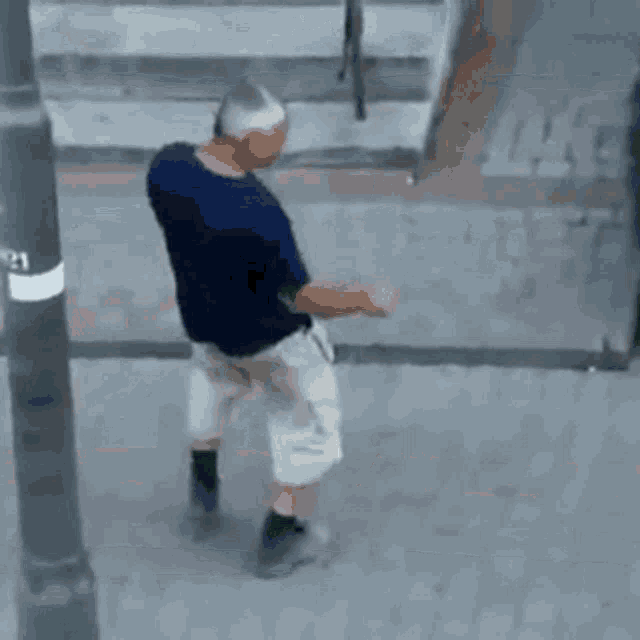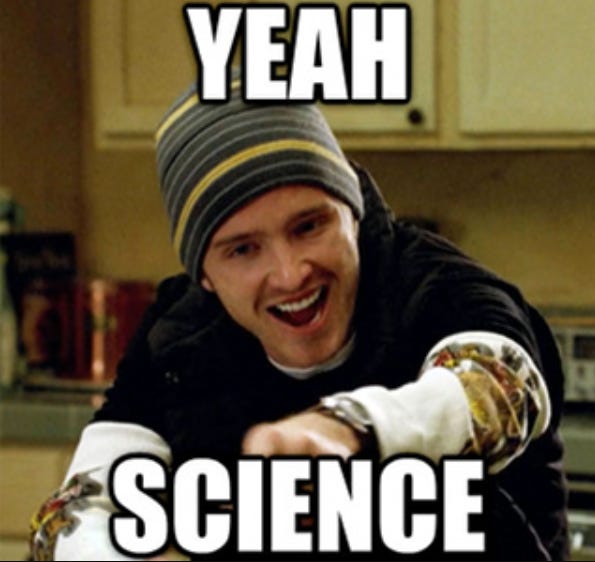
Just a couple days ago, CNN (conspicuously deviating from their modus operandi) put Dr. Anthony Fauci on the spot by referencing a Cochrane Review that’s being touted as proof that masks don’t work.
Citing Bret Stephens’ Opinion piece at The New York Times, they focused on commentary from a Maryanne Demasi interview with Tom Jefferson, the Oxford epidemiologist who led the review.
From the article:
“There is just no evidence that they” — masks — “make any difference,” he told the journalist Maryanne Demasi. “Full stop.”
But, wait, hold on. What about N-95 masks, as opposed to lower-quality surgical or cloth masks?
“Makes no difference — none of it,” said Jefferson.
What about the studies that initially persuaded policymakers to impose mask mandates?
“They were convinced by nonrandomized studies, flawed observational studies.”
What about the utility of masks in conjunction with other preventive measures, such as hand hygiene, physical distancing or air filtration?
“There’s no evidence that many of these things make any difference.”
Immediately, the internet was abuzz with anti-Fauci victory laps.
Rand Paul Twee…er…X’ed:
According to The New York Post, others weighed in:
“Holy s***t @cnn just directly confronted Dr. Fauci on air with bullet proof scientific evidence that masks don’t work at all. It only took three years, but finally!” Outkick host Clay Travis wrote.
“Fauci confronted with most definitive data analysis possible that masks make ZERO difference against Covid. Not a little, not slight- Zero. And he just mutters some numerical illiteracy bulls–t about ‘individual protection.’ He’s a fraud and a liar,” conservative commentator Buck Sexton said.
“It’s really hard to assume Fauci’s disastrous ‘mistakes’ were in good faith when he refuses to acknowledge obvious facts that don’t require a PhD to decipher. It looks a lot more like ‘TRUST THE SCIENCE!’ only applies when it suits Fauci’s personal or political narrative,” former senior White House and US Intelligence Community official Cliff Sims said.
Now, to be clear, Fauci’s response was all fluff. He failed to address the review, and instead vaguely referenced other studies that he claims show some efficacy on “an individual level” as opposed to a pandemic as a whole, which is its own can of worms. But I’m not here for Saint Faucinus, not this time. No, I’m here to discuss the review itself and what it actually means to the masking discourse.
A bit of history:
Some may be surprised to discover that the original use of masking in healthcare, as we do today, can be dated back not millennia or even centuries ago, but really just to the late 19th century.
As it turns out, our understanding of microscopic germs is really fairly new in the grand scheme of things.
According to Strasser and Schlich, as published in The Lancet (it’s a premier medical journal during Covid, so you know it’s facts):
“A study of more than 1000 photographs of surgeons in operating rooms in US and European hospitals between 1863 and 1969 indicated that by 1923 over two-thirds of them wore masks and by 1935 most of them were using masks.”
They go on to add:
“It was mainly the use of the mask to cover the mouth and nose (and beard) during the Manchurian plague of 1910–11 and the influenza pandemic of 1918–19 that turned the face mask into a means of protecting medical workers and patients from infectious diseases outside of the operating room. During the 1918–19 influenza pandemic, wearing a mask became mandatory for police forces, medical workers, and even residents in some US cities, although its use was often controversial.”
Apparently, some circumstantial evidence “proved” it worked in San Francisco, so it was pretty much hard science from there on…in the general era of lobotomies.
Curiously, the studies that Bruno and Schlich reference in that piece are — echoing the contemporary zeitgeist — predominantly “industry-funded” and “observational” (types of studies that are well recognized as deeply flawed).
So, has there ever been a solid, scientific exploration of the real-world effectiveness of masks?
“I’m glad you asked.”
For background, The Cochrane Collaboration is the gold standard for systematic reviews in healthcare. A not-for-profit organization that doesn’t accept commercial or conflicting funding, they do excellent work independently testing and compiling the data from studies over various topics.
In January of this year, they published the review in question, titled “Physical interventions to interrupt or reduce the spread of respiratory viruses,” with the express goal “To assess the effectiveness of physical interventions to interrupt or reduce the spread of acute respiratory viruses.”
The team of experts reviewed “78 relevant studies,” including RCTs (Randomized Controlled Trials, often considered the most reliable study type). The results were seemingly damning for the mask narrative, as was expressed by Tom Jefferson in the Demasi interview.
Yet, despite caustic rhetoric and the many staunch retorts from Team Fuck-Fauci, the truth is that the review doesn’t prove that masks don’t work. In fact, anyone claiming this is misrepresenting the review entirely.
In light of many such false representations, Cochrane published a clarification of how the results should be understood in March:
Indeed, the updated plain language section now simply states:
“We are uncertain whether wearing masks or N95/P2 respirators helps to slow the spread of respiratory viruses based on the studies we assessed.”
So what does this mean?
Sparing everyone the boring details, there are two reasonable takeaways from the review. The first is uncertainty: There’s just no clear evidence that masks work in any meaningful way in preventing the spread of respiratory viruses such as SARS-CoV-2, Influenza, or Respiratory Syncytial Virus (RSV). The second is that the studies were all deeply flawed with “high risk of bias … variation in outcome measurement, and relatively low adherence with the interventions during the studies…”
As noted in their statement:
“…in the most heavily-weighted trial of interventions to promote community mask wearing, 42.3% of people in the intervention arm wore masks compared to 13.3% of those in the control arm.”
To be clear, while absence of evidence isn’t evidence itself, the review is still very much damning, just not the way everyone seems to think.
There are a few things I find striking with this topic.
The first is the timeline. The Review was completed in January of this year. The Demasi interview and subsequent New York Times Opinion piece that CNN cited were published in February. Yet, here we are in September, talking about it as if it just happened.
This is old news to those who remain attuned to the scientific community, but if you’re not so exciting as the “sweep medical journals for updates on a dead pandemic” kinda guys, this is probably the first you’ve heard of it.
The second is that the studies are all so flawed. At least, that’s according the authors of the review. So, why then aren’t scientists trying harder to explore this subject? Why are researchers doing such a piss-poor job with their studies? If we’re to blindly believe in our technocratic elites — in the character of an educated mind and the good will of science itself — how the hell can they rationalize dropping the ball so hard on something so simple as masks?
How can we “follow the science” when it’s stumbling in a gutter?
“…lesh go make public policy!”
The third is that there’s clearly a human element to this topic that we’re swiftly sweeping under the rug. Think back during the pandemic: How many wore masks under their nose? How many under their chin for that matter? How many fidgeted with them, wore them loosely, or even wore sizes too large for their face? In fact, chances are you — yes, even you Ms. Ardent Mask Believer who was totally on the right side of history — were probably wearing it wrong too.
Then there were the socially acceptable misuse of masks. Remember when you had to wear a one to a restaurant, but once you sat down to eat, Covid couldn’t get you anymore?
Good times.
And let’s not forget that that the results were consistent regardless of the mask type. As Jefferson said, N95s were found to be no different than surgical or less reliable types of masks.
One can only shudder at the early days when public health officials demanded you wear even just a scarf if that’s all you had.
To, wit — aside from further discrediting the scientific community itself, this review certainly does one thing very well: It makes the case that any argument for mask mandates are not based in reality.
Faith in masks for respiratory viruses is, for all intents and purposes, currently unscientific. In fact, I’d go so far as to say it’s largely predicated on a paradigm, a phantasm of security to which we cling in our efforts of maintaining a sense of control.
Furthermore, even if masks could work, the human element will kneecap them anyway.
Now, here the angry “Covidiots” who hated anti-maskers with a venom typically reserved for rapists and Furries will say, “blame the people!” Well, blame them all you want, but that won’t fix them, and let’s be honest, that’s not going to happen any time soon anyway. Certainly not in the time it takes to react to a pandemic, and especially not when there’s no impending fear that could potentially motivate them to dramatically change their behavioral patterns.
Hell, people can’t even make a cheeseburger right.
And not all human error is laziness — those 78 studies took place “in low‐, middle‐, and high‐income countries worldwide: in hospitals, schools, homes, offices, childcare centres, and communities…”
That’s to say, medical professionals in first world countries couldn’t even sway the results.
It also doesn’t help when our health professionals directly lie to us…
Even if you buy into the crowd-tested moniker, “noble lie,” a lie is still a lie, and Fauci et al damaged not only their own credibility, but that of masks as well.
If people don’t even believe in masks, how the hell will they take it seriously enough to use them effectively?
Now, am I saying that I believe masks don’t work? No, not at all.
I’m saying I don’t know and neither do you, and that’s a problem.
Worse yet, I’m saying the scientific community doesn’t — even as they pushed mandates.
In closing, while the report doesn’t expressly say that masks don’t work, what it does show us is, in many ways, equally bad. We simply don’t know, and that means either the masks are so ineffectual, they can’t be proven; the scientists are so ineffectual, they can’t be trusted; or the people are so ineffectual, the rest doesn’t matter. How could we mandate over such nebulous grounds?
This subject is especially relevant now as we move into a new wave of jabs (and the Public Health Apparatus drumming up fear to market them to an otherwise disinterested public). We’re already seeing a return to mandates amongst the terrified, but at least now we can say with some degree of confidence that it’s not based on real-world results.
Personally, I’m still of a mind that it should all be personal choice. Want to mask? Go for it! But any demands that I wear one to stop the spread of respiratory viruses are simply not predicated on the data.
That’s not following The Science™ — it’s following a cult of fear.







